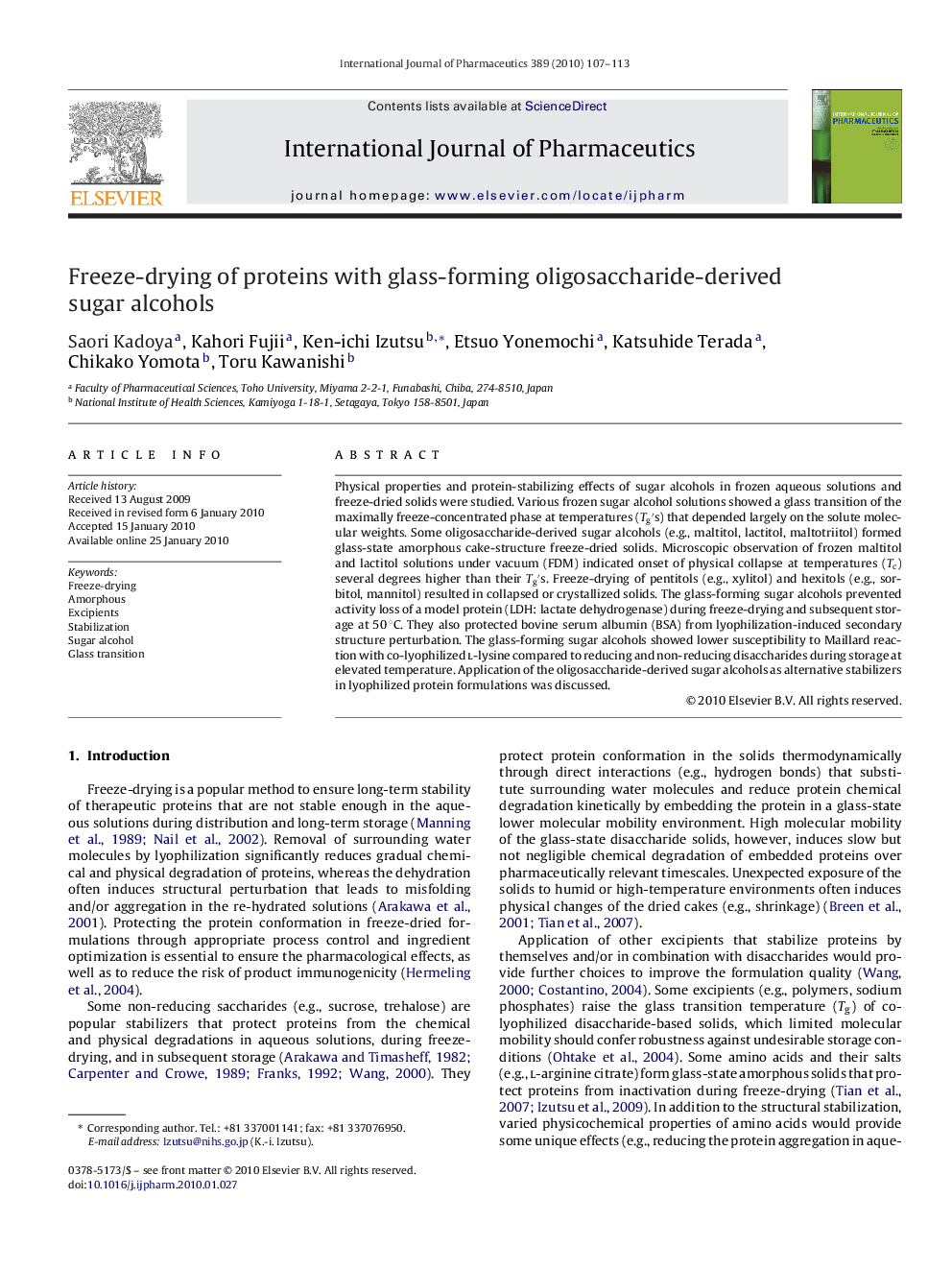| Article ID | Journal | Published Year | Pages | File Type |
|---|---|---|---|---|
| 2504214 | International Journal of Pharmaceutics | 2010 | 7 Pages |
Physical properties and protein-stabilizing effects of sugar alcohols in frozen aqueous solutions and freeze-dried solids were studied. Various frozen sugar alcohol solutions showed a glass transition of the maximally freeze-concentrated phase at temperatures (Tg′s) that depended largely on the solute molecular weights. Some oligosaccharide-derived sugar alcohols (e.g., maltitol, lactitol, maltotriitol) formed glass-state amorphous cake-structure freeze-dried solids. Microscopic observation of frozen maltitol and lactitol solutions under vacuum (FDM) indicated onset of physical collapse at temperatures (Tc) several degrees higher than their Tg′s. Freeze-drying of pentitols (e.g., xylitol) and hexitols (e.g., sorbitol, mannitol) resulted in collapsed or crystallized solids. The glass-forming sugar alcohols prevented activity loss of a model protein (LDH: lactate dehydrogenase) during freeze-drying and subsequent storage at 50 °C. They also protected bovine serum albumin (BSA) from lyophilization-induced secondary structure perturbation. The glass-forming sugar alcohols showed lower susceptibility to Maillard reaction with co-lyophilized l-lysine compared to reducing and non-reducing disaccharides during storage at elevated temperature. Application of the oligosaccharide-derived sugar alcohols as alternative stabilizers in lyophilized protein formulations was discussed.
